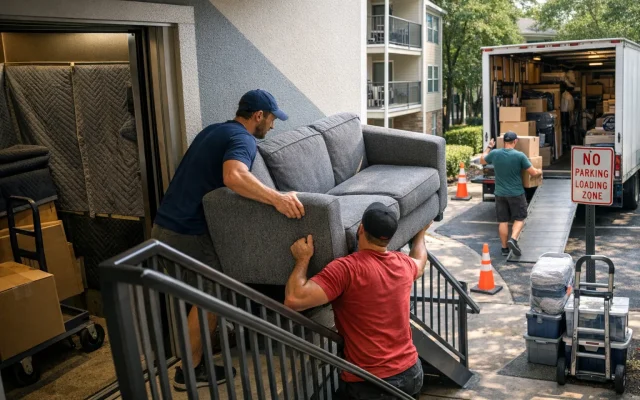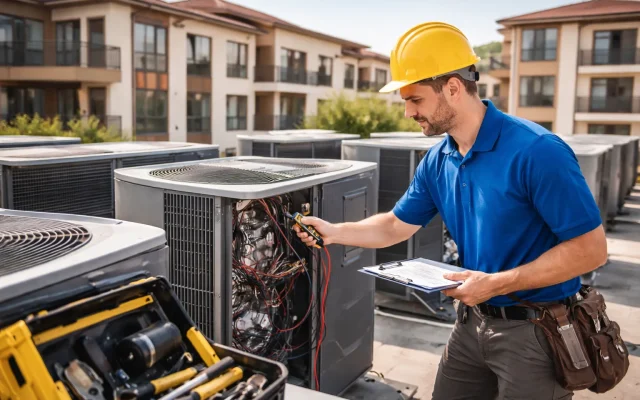So, you’ve decided it’s time to buy a house. Maybe you’re tired of paying rent that seems to vanish into thin air. Maybe you’re craving a backyard, or maybe you just want walls you can finally paint without worrying about losing your security deposit. Whatever the reason, the moment you decide you’re ready is both exciting and overwhelming. The market doesn’t exactly make things simple. Prices are up, mortgage rates are unpredictable, and competition in many cities feels like you’re entering a lottery. No wonder buying a home can feel like navigating a maze with moving walls.
Still, millions of people do it every year, and the key is knowing what steps to take first. This stage sets the tone for the entire buying process. Skip the basics, and you may find yourself stressed or scrambling later. Get them right, and the journey becomes smoother—even enjoyable. We will share the first things you should do when you’re ready to buy a house, why they matter, and how they’ll help you move from dreaming to moving in.
Get Your Financial Foundation in Place
Before house hunting, focus on your finances by checking your credit score—your financial report card—since even small improvements can mean better loan terms and big savings over time.
Next, look closely at your savings. You’ll need money for a down payment, but that’s not the whole story. Closing costs, moving expenses, and potential repairs can add up quickly. Creating a clear picture of your budget helps you avoid nasty surprises later.
This is also the time to talk about mortgage preapproval. It’s not just paperwork. It’s proof to sellers that you’re serious and financially ready. In today’s competitive market, having preapproval can make the difference between getting the house you love and watching someone else snatch it up. Preapproval also shows you how much you can realistically afford. Many buyers skip this step and fall in love with homes way outside their range. That heartbreak is avoidable if you get clarity early.
Think of preapproval as the first handshake with the financial side of the process. It speeds up everything once you’re ready to make an offer and makes your bid stronger compared to someone who hasn’t taken the step. If there’s one early move that sets you up for success, this is it.
Understand the Market You’re Entering
Buying a home isn’t just a personal decision. It’s also a response to larger trends in the economy. Right now, housing markets across the country are adjusting to shifts in mortgage rates and inventory. In some places, prices are still climbing because demand outweighs supply. In others, higher rates are cooling competition.
Understanding these patterns matters because timing can affect both your options and your confidence. Research your local market. How long are homes staying listed before selling? Are prices steady, rising, or falling? Is there more competition in certain neighborhoods than others? The answers will help you refine your expectations and strategy.
You can also look at broader societal trends. For example, remote work has changed buying behavior. People who once needed to live near downtown offices are spreading out into suburbs or smaller towns, creating new demand. Climate risks are another factor. Some buyers are reconsidering locations due to concerns about flooding, wildfires, or extreme weather. Paying attention to these realities can save you from future stress and help you pick a home that fits not just your current life but your future needs.
Think About Your Non-Negotiables
It’s tempting to focus only on price when house hunting, but you also need to know what features matter most to you. Is it location? Square footage? A home office? Maybe it’s school districts or walkability. Everyone has different priorities, and defining yours before you shop saves time and frustration.
Start by making two lists: must-haves and nice-to-haves. Must-haves are the essentials that you won’t compromise on. Nice-to-haves are the extras you’d love but can live without if needed. This approach keeps you grounded when emotions run high during viewings. Without it, it’s easy to get distracted by staging or cosmetic details that don’t really matter.
Find the Right Team
Buying a home isn’t something you do alone. Having the right people in your corner makes all the difference. That usually starts with finding a reliable real estate agent. A good agent doesn’t just unlock doors. They understand the market, negotiate on your behalf, and guide you through paperwork that can feel like another language. Look for someone who listens, communicates well, and has experience in the neighborhoods you’re targeting.
You’ll also want to identify a lender you trust. This is someone you can ask questions without feeling rushed or judged. The best lenders don’t just approve you for a loan; they help you understand your options, whether that’s fixed-rate, adjustable-rate, or special programs for first-time buyers.
Be Ready for the Emotional Rollercoaster
Let’s be honest: buying a home can be stressful. You might find yourself falling in love with a house, making an offer, and losing out. It happens. Or you might start to second-guess your budget after a bidding war. These ups and downs are normal, but preparation helps. The clearer you are about your finances, priorities, and team, the easier it is to bounce back from setbacks.
It’s also important to remember the bigger picture. This isn’t just a transaction. It’s about creating stability, building equity, and having a place to call your own. Keeping that perspective makes the stressful moments easier to handle.
Why the First Steps Matter Most
Buying a home is a major milestone, but it’s not a single leap. It’s a series of steps, and the first ones shape the path ahead. Get your financial house in order, understand the market, set your priorities, and find the right support. Do those things, and you’re not just ready to buy a house—you’re ready to buy the right house.
The truth is, anyone can jump into listings and daydream about hardwood floors or big backyards. The people who actually get the keys are the ones who prepare first. And preparation doesn’t take the excitement out of the process. It makes sure the excitement ends with a door that opens to a home you can truly call your own.
Common Questions
Mortgage preapproval shows sellers you’re financially ready and serious about buying. It also gives you a clear budget, helping you avoid falling for homes outside your price range.
Check your credit score, boost it if possible, and assess your savings for down payment, closing costs, moving expenses, and repairs. A solid financial foundation helps prevent surprises later.
Knowing local trends—like how long homes stay on the market or if prices are rising—can guide your timing and offer strategy. It also helps set realistic expectations.
Must-haves are non-negotiable features you require, like location or number of bedrooms. Nice-to-haves are desirable extras you can compromise on if needed.
A skilled agent understands the market, negotiates effectively, and guides you through the buying process. They can save you time, stress, and even money.
You may face bidding wars, rejected offers, or second-guessing your budget. Staying prepared and focused on your long-term goals helps manage these ups and downs.
Early actions like organizing finances, knowing your priorities, and building the right team set the stage for a smoother, more successful buying experience.







